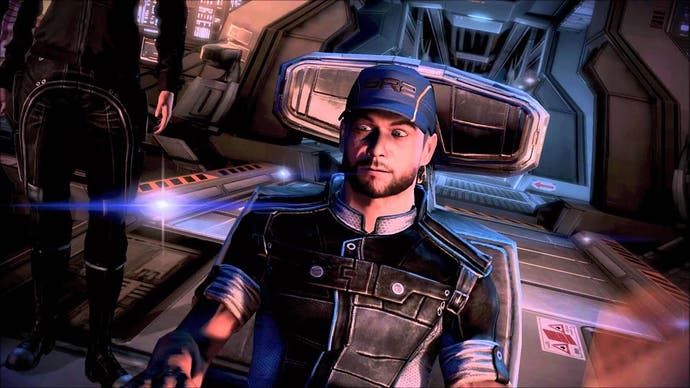BioWare lays off senior writing staff as part of its recent job cuts
"I just assumed he'd eventually be buried under one of the cornerstones. I imagine everyone did."
As part of its recently publicised cutbacks, BioWare has "let go of" Lukas Kristjanson, the lead writer behind Baldur's Gate 1 and 2, and the writer of the first three Dragon Age games, Mary Kirby.
BioWare announced earlier this week that it'll be laying off approximately 50 employees - around 20 per cent of its total workforce, according to recent employment figures - as part of a "shift towards a more agile and more focused studio". Each writer had been with the studio for over 20 years.
Kristjanson is widely credited for not just bringing us the original Baldur's Gate games, but also credited as the writer behind some of gaming's most iconic characters, including Minsc and Mass Effect's Joker.
"Stunned to learn BioWare also let go of Lukas Kristjanson," tweeted David Gaider, himself a revered long-time BioWare writer before he left the studio in 2016 (thanks, TheGamer).
"We used to call him Old Man Luke and Writer Alpha - there since BG1, the writer behind Minsc and Joker and so many more. One of Bio's longest-serving employees. Hats off to him, hope he's doing well."
"I just assumed he'd eventually be buried under one of the cornerstones. I imagine everyone did," he added in a subsequent reply.
Kirby, on the other hand, had been with BioWare since 2006 and is credited with bringing fan-favourite Varric to life.
The redundancies have sparked rumours that the studio is targeting either mid-/senior-level developers, narrative designers, or both, although, at this stage, the criteria BioWare used to select its redundancies remains unclear.
"In order to meet the needs of our upcoming projects, continue to hold ourselves to the highest standard of quality, and ensure BioWare can continue to thrive in an industry that's rapidly evolving," BioWare general manager Gary McKay wrote at the time, "we must shift towards a more agile and more focused studio. It will allow our developers to iterate quickly, unlock more creativity, and form a clear vision of what we're building before development ramps up."
"To achieve this," McKay continued, "we find ourselves in a position where change is not only necessary, but unavoidable. As difficult as this is to say, rethinking our approach to development inevitably means reorganising our team to match the studio's changing needs."


